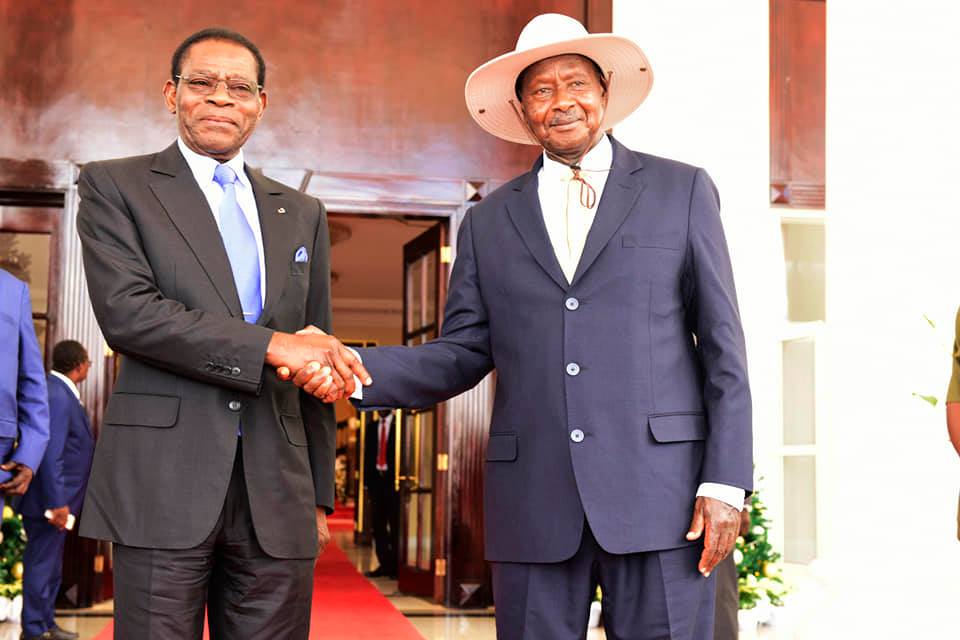President Yoweri Museveni on 13th December received his counter-part President Teodoro Obiang Nguema Mbasogo of Equatorial Guinea who arrived in the country on Friday on a two-day official visit.
President Mbasogo’s visit comes shortly after United Nations High Commission for Refugees (UNHCR) welcomed Equatorial Guinea’s accession to the Kampala Convention on internally displaced people (IDPs), becoming the 29th African Union (AU) member state to do so according to the UNHCR.
“In our discussion, I reiterated our government’s Pan-Africanist ideals that influence our open-door policy when dealing with refugees. These displaced people from neighbouring countries are our brothers and sisters, we have no reason to shut the doors in their faces,” Museveni said after meeting Mbasogo.
He added, “A lot of the conflicts in the continent that cause these displacements are a product of bad politics, influenced by identity, tribe and religion. To stop the refugee crisis, Africa must fix this wrong political premise and emphasise people’s interests rather than identity.”
The Kampala Convention is the world’s first and only regional legally binding instrument for the protection and assistance of IDPs, who often face heightened risks, violations and sexual violence because of their displacement, while they struggle to access their rights and basic protection.
Equatorial Guinea deposited its instrument of ratification of the Kampala Convention at the AU headquarters in Addis Ababa, Ethiopia in October this year. With this development, 29 of the AU’s 55 member states have now acceded to the Kampala Convention.
The move by Equatorial Guinea is particularly opportune as the Kampala Convention is marking its 10th anniversary this year with activities organized by the AU with support from UNHCR and other partners.
President Mbasogo who is the official AU champion of 2019 on finding solutions to forced displacement in Africa and will represent the AU at the Global Refugee Forum in Geneva had a tete-a-tete meeting with President Yoweri Museveni.
Tomorrow he will tour Kiryandongo Refugee Settlement center, Panyandoli Health Centre 111 and Panyandoli vocation school to have a first hand experience on how Uganda has successfully handled the refugee situation.
Over one million refugees have fled to Uganda in the last two and a half years, making Uganda the third largest refugee-hosting country in the world after Turkey and Pakistan1 , with 1.36 million refugees by June 2018.
Wars, violence and persecution in the Horn of Africa and Great Lakes Region were the main drivers of forced displacement into Uganda, led by South Sudan’s conflict, insecurity and ethnic violence in the Democratic Republic of the Congo (DRC) and political instability and human rights violations in Burundi.











